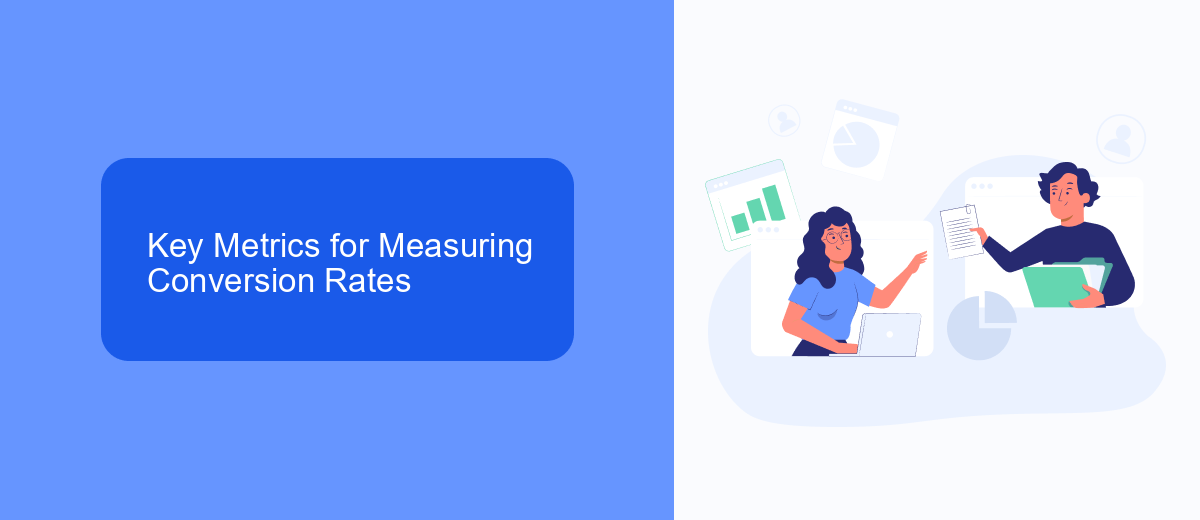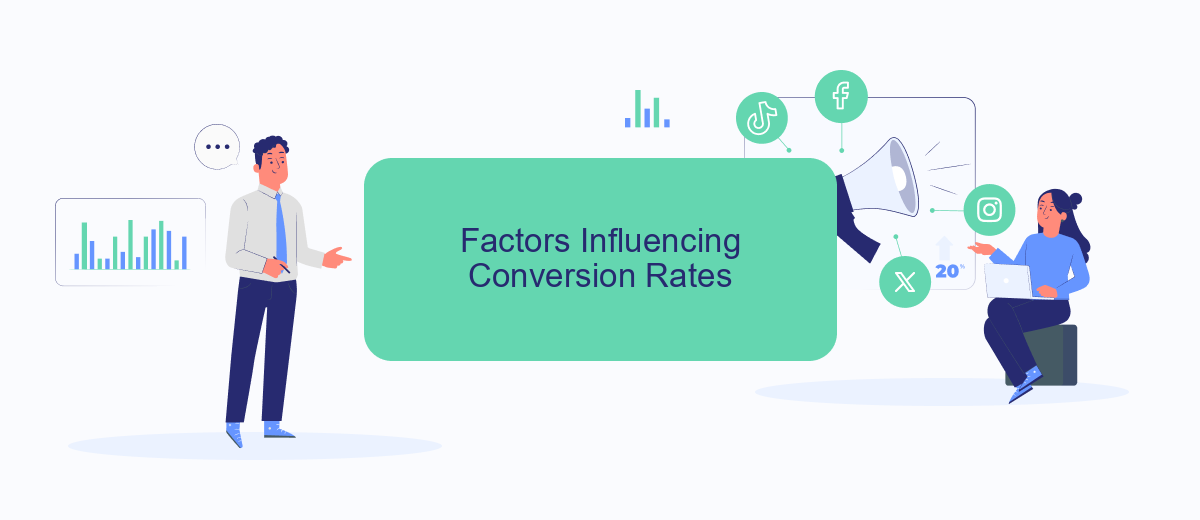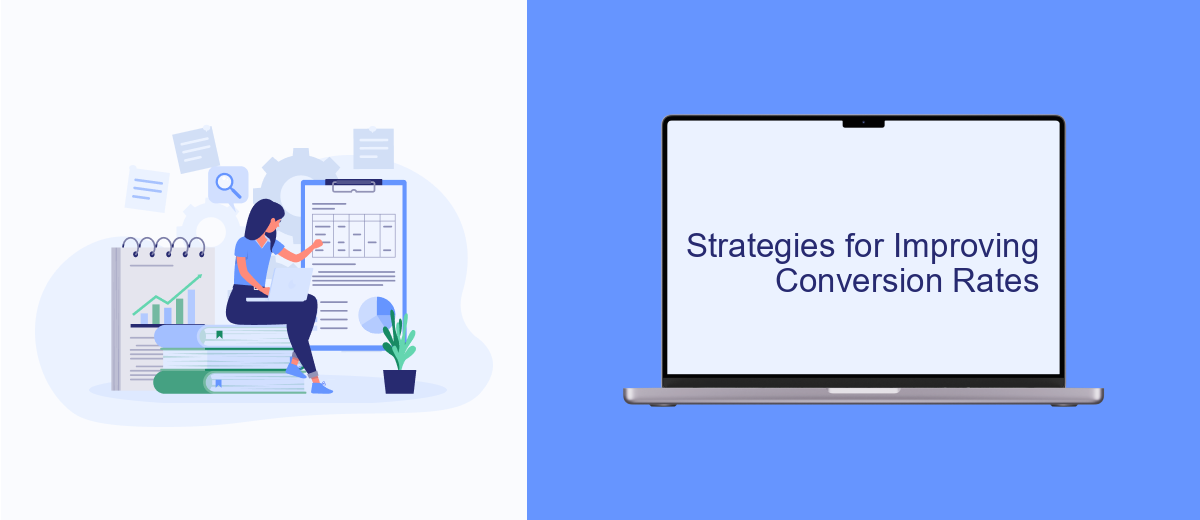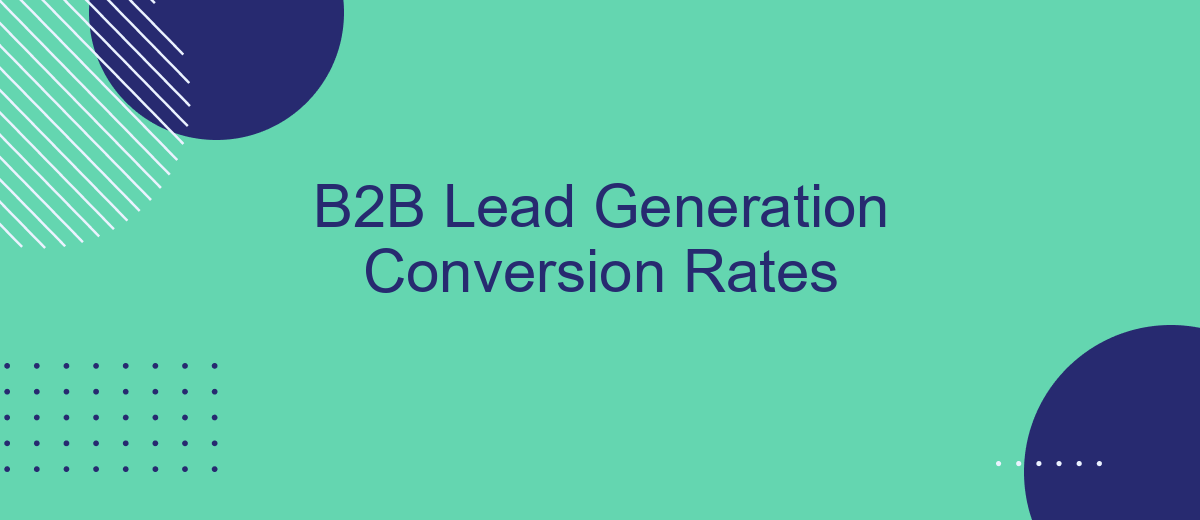In today's competitive market, optimizing B2B lead generation conversion rates is crucial for business growth. By effectively converting prospects into qualified leads, companies can maximize their sales opportunities and enhance their ROI. This article explores key strategies and best practices to improve your B2B lead generation conversion rates, ensuring your marketing efforts translate into tangible business success.
Define B2B Lead Generation Conversion Rates
B2B Lead Generation Conversion Rates refer to the percentage of potential business leads that successfully convert into actual customers or meaningful engagements. This metric is crucial for understanding the effectiveness of your lead generation strategies and optimizing your marketing efforts. By tracking conversion rates, businesses can identify areas for improvement and allocate resources more efficiently.
- Measure the effectiveness of marketing campaigns
- Identify high-performing lead sources
- Optimize sales and marketing processes
To enhance B2B lead generation conversion rates, companies often leverage various tools and services. One such service is SaveMyLeads, which automates the integration of lead generation platforms with CRM systems and other business applications. This ensures a seamless transfer of lead data, reducing manual errors and improving response times, ultimately leading to higher conversion rates.
Key Metrics for Measuring Conversion Rates

Measuring conversion rates in B2B lead generation is crucial for understanding the effectiveness of your marketing strategies. Key metrics to consider include the Lead Conversion Rate, which measures the percentage of leads that turn into customers, and the Marketing Qualified Leads (MQL) to Sales Qualified Leads (SQL) ratio, which helps determine the quality of leads generated. Additionally, the Customer Acquisition Cost (CAC) is essential for evaluating the cost-effectiveness of your campaigns.
Another important metric is the Time to Conversion, which tracks the average time it takes for a lead to become a customer. This can help identify bottlenecks in your sales funnel. Utilizing integration services like SaveMyLeads can streamline the process of capturing and nurturing leads, ensuring that all key metrics are accurately tracked and analyzed. By focusing on these metrics, businesses can optimize their lead generation efforts and improve overall conversion rates.
Factors Influencing Conversion Rates

Conversion rates in B2B lead generation are influenced by a variety of factors, each playing a crucial role in determining the effectiveness of your campaigns. Understanding these factors can help you optimize your strategies and achieve better results.
- Target Audience: The more accurately you define and reach your target audience, the higher your conversion rates will be.
- Lead Quality: High-quality leads are more likely to convert, making it essential to focus on generating leads that match your ideal customer profile.
- Landing Page Optimization: A well-designed landing page with clear calls to action can significantly boost your conversion rates.
- Follow-up Strategy: Timely and personalized follow-ups can greatly enhance the chances of converting leads into customers.
- Integration and Automation: Utilizing services like SaveMyLeads to automate and integrate your lead generation processes can improve efficiency and conversion rates.
By paying attention to these factors and continuously refining your approach, you can improve your B2B lead generation conversion rates. Leveraging tools and services that enhance your lead management processes, such as SaveMyLeads, can provide a significant competitive advantage.
Strategies for Improving Conversion Rates

Improving B2B lead generation conversion rates is crucial for maximizing the return on investment in your marketing efforts. One effective approach is to refine your targeting and messaging strategies to ensure that you are reaching the right audience with the right message at the right time.
Another important strategy is to optimize your landing pages and forms. Make sure your landing pages are user-friendly, visually appealing, and provide clear value propositions. Additionally, simplify your forms to reduce friction and improve the user experience.
- Utilize A/B testing to identify the most effective elements of your campaigns.
- Implement retargeting campaigns to re-engage visitors who did not convert initially.
- Leverage marketing automation tools to nurture leads through personalized email sequences.
- Integrate CRM systems with lead generation tools using services like SaveMyLeads to streamline data flow and enhance lead management.
By continuously analyzing and optimizing your strategies, you can significantly improve your B2B lead generation conversion rates. Remember to stay agile and adapt to new trends and technologies to stay ahead of the competition.
- Automate the work with leads from the Facebook advertising account
- Empower with integrations and instant transfer of leads
- Don't spend money on developers or integrators
- Save time by automating routine tasks
Best Practices for Tracking and Optimizing
To effectively track and optimize your B2B lead generation conversion rates, start by implementing robust analytics tools such as Google Analytics or HubSpot. These platforms provide detailed insights into user behavior, helping you identify which channels and strategies are most effective. Regularly review your data to pinpoint trends and areas for improvement. Additionally, consider setting up UTM parameters to track the performance of specific campaigns and content pieces, allowing for more granular analysis.
Integrating your lead generation tools with a service like SaveMyLeads can further streamline your tracking and optimization efforts. SaveMyLeads automates the process of transferring lead data between different platforms, ensuring that your CRM and marketing tools are always up-to-date. This not only saves time but also reduces the risk of data loss or errors. By maintaining a seamless flow of information, you can make more informed decisions and continuously refine your strategies to improve conversion rates.
FAQ
What is a good conversion rate for B2B lead generation?
How can I improve my B2B lead conversion rates?
What metrics should I track to measure the success of my B2B lead generation efforts?
How important is lead nurturing in B2B lead generation?
What role does automation play in B2B lead generation?
Personalized responses to new clients from Facebook/Instagram. Receiving data on new orders in real time. Prompt delivery of information to all employees who are involved in lead processing. All this can be done automatically. With the SaveMyLeads service, you will be able to easily create integrations for Facebook Lead Ads and implement automation. Set up the integration once and let it do the chores every day.

